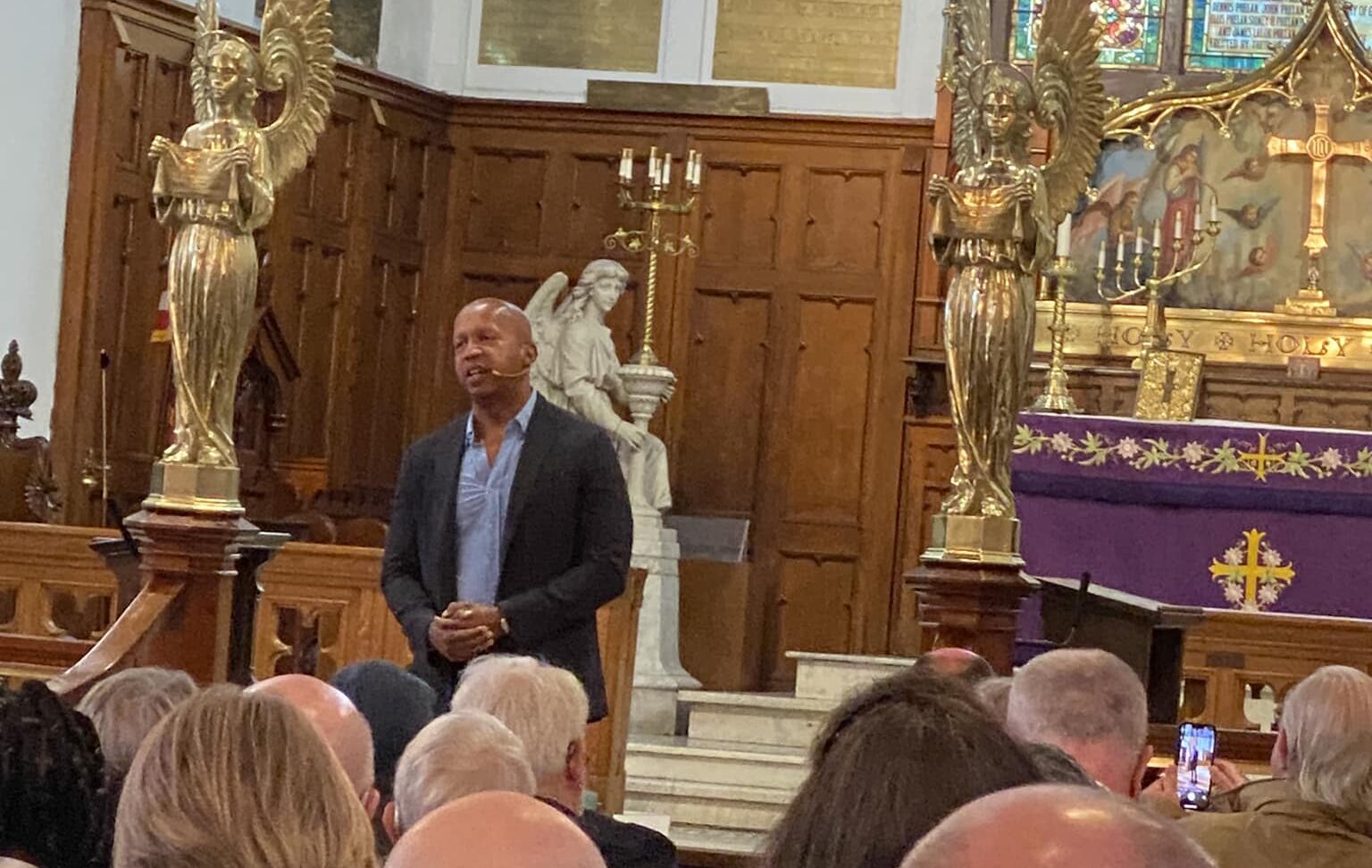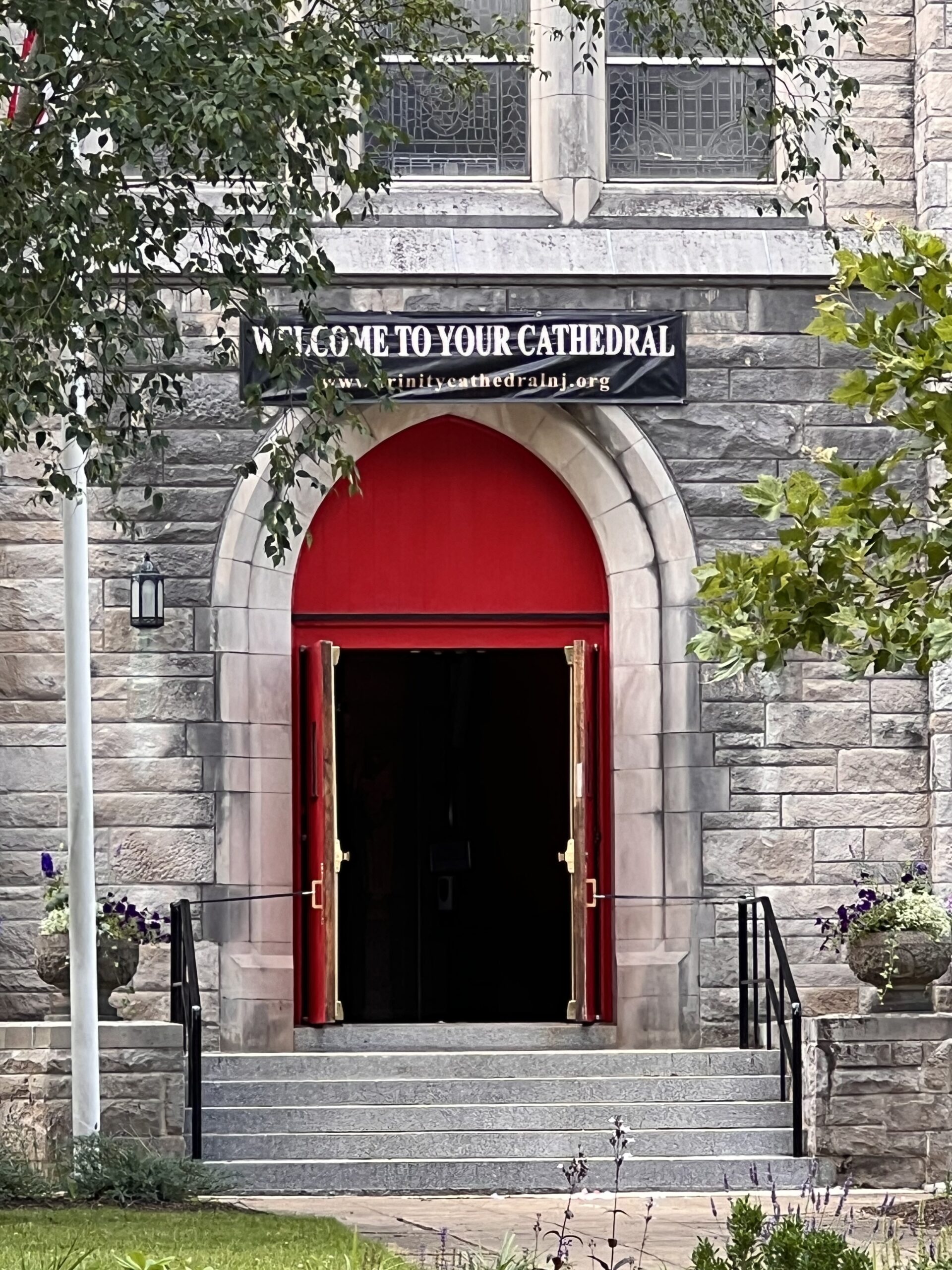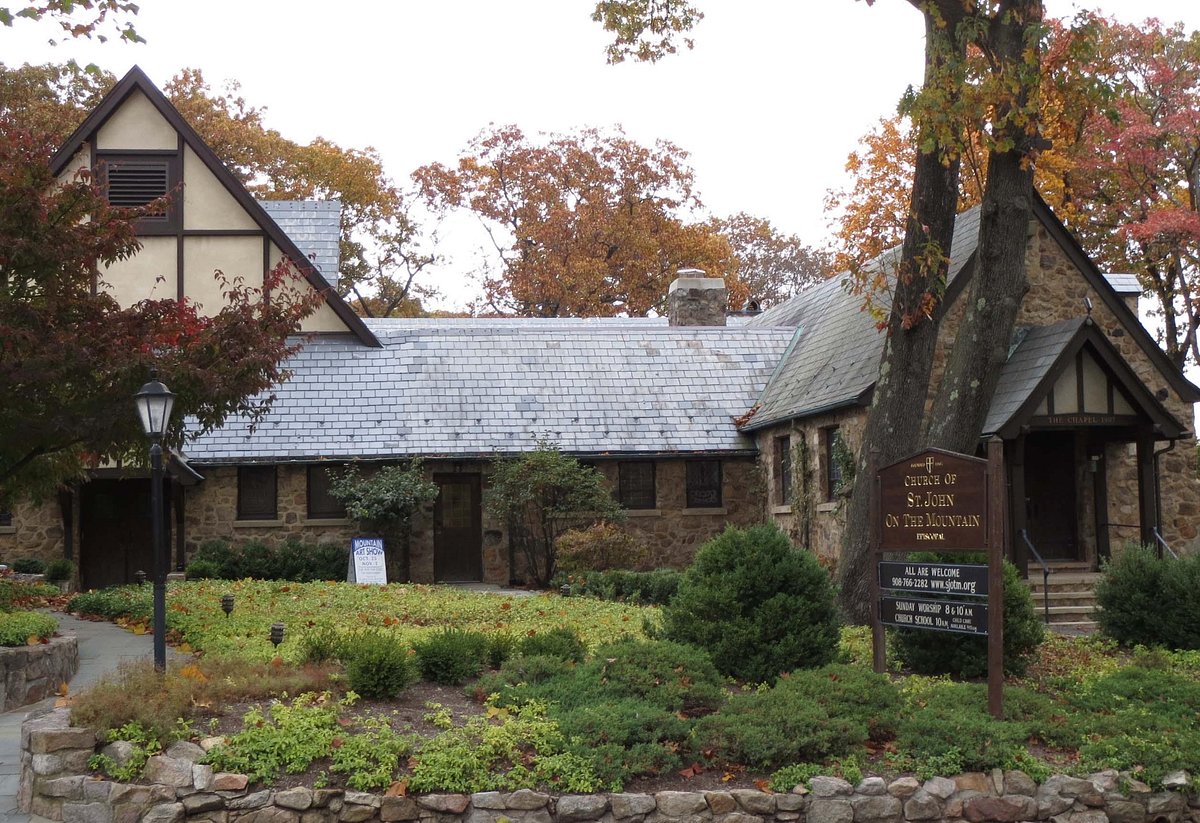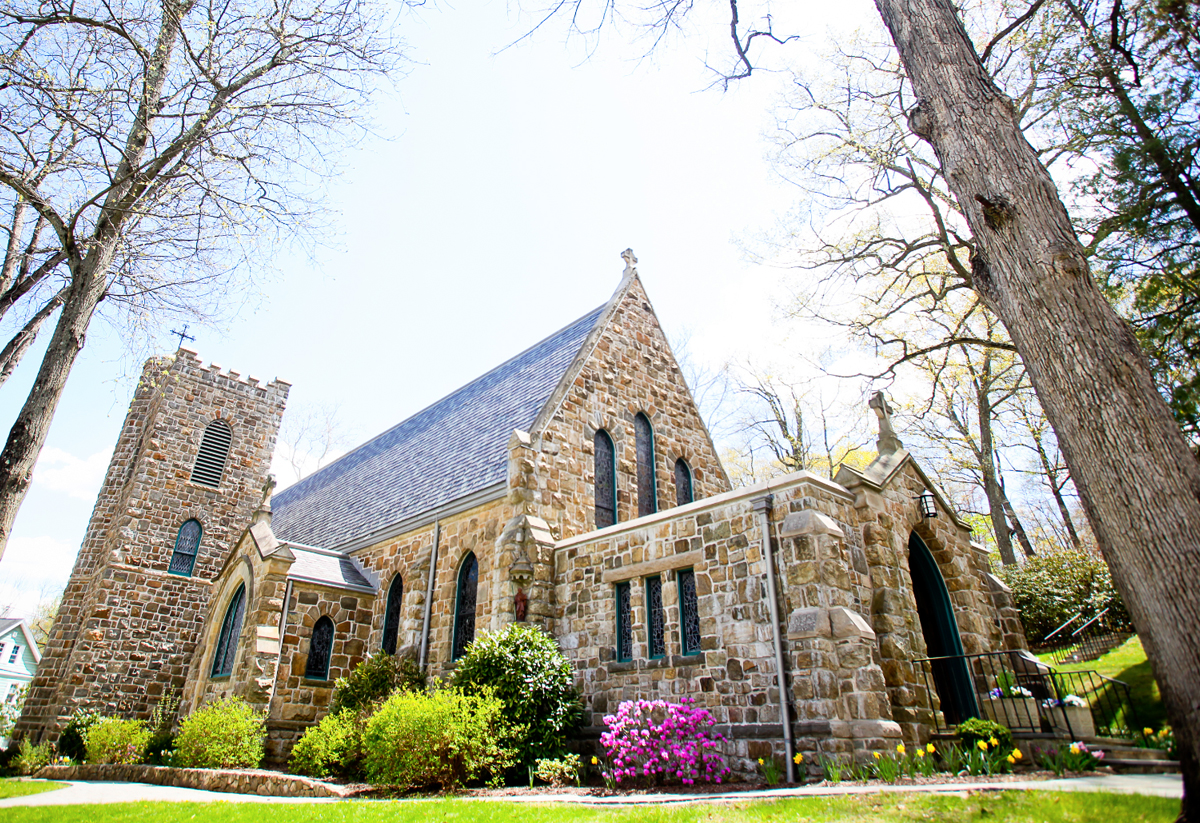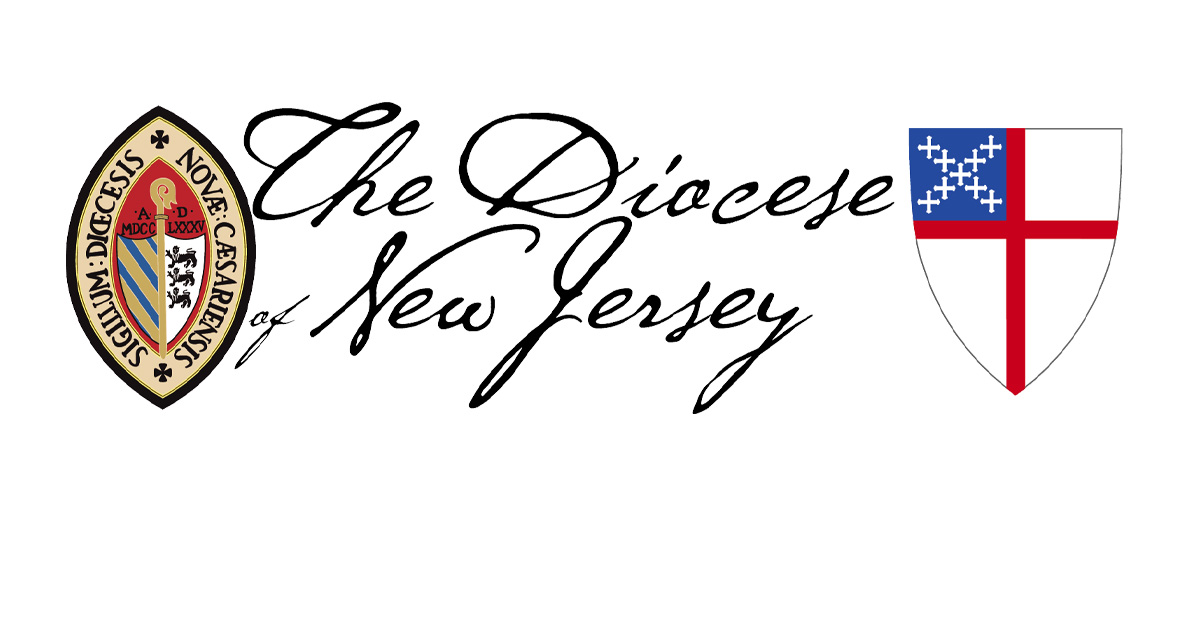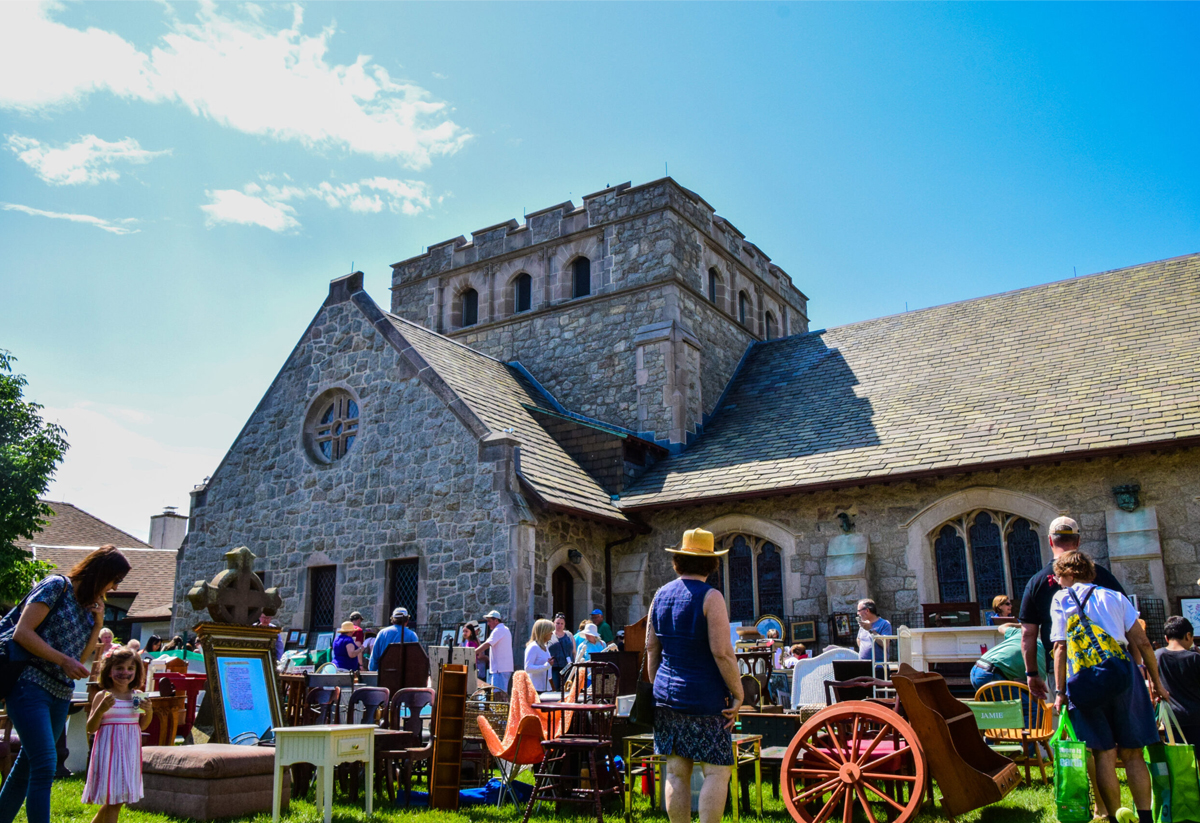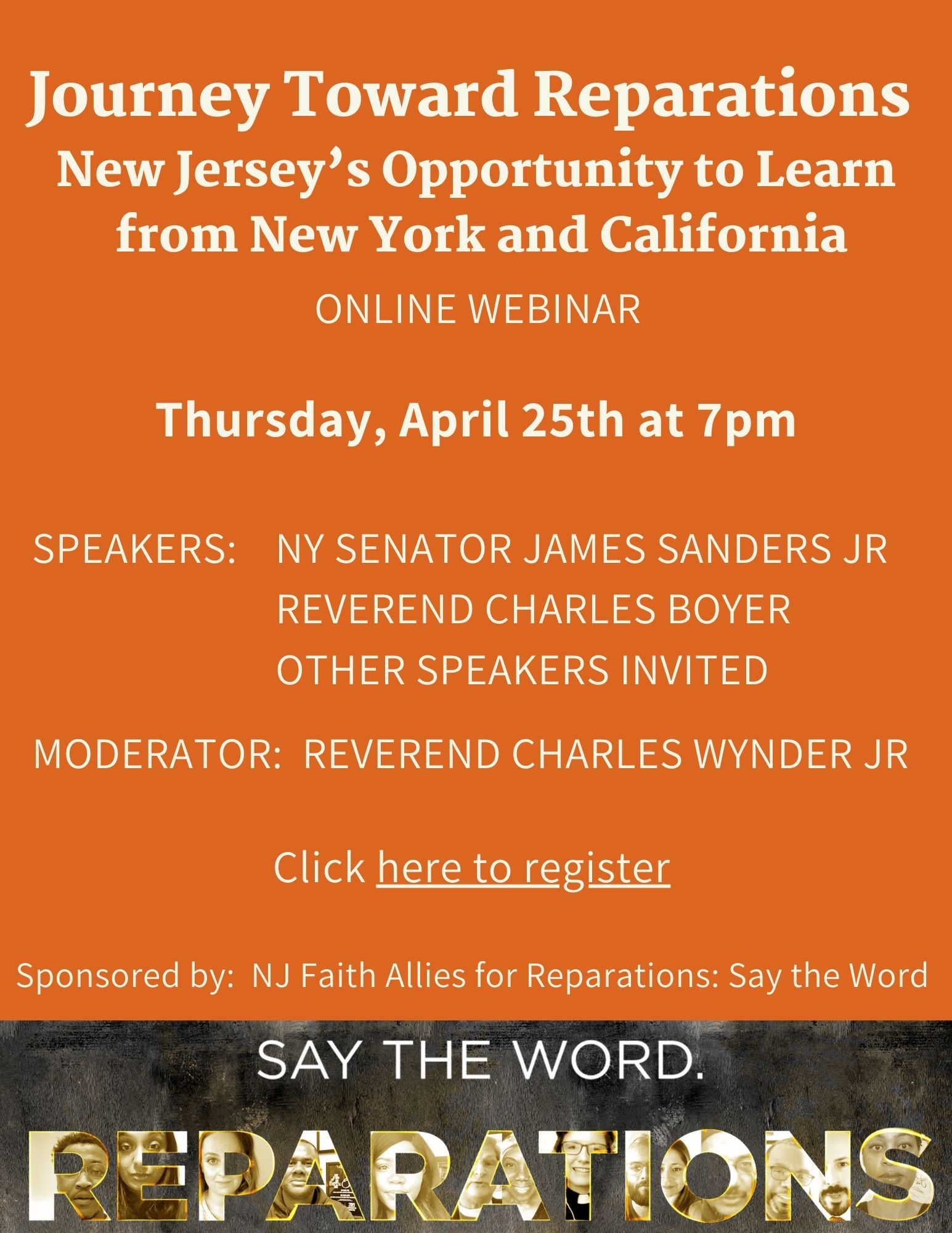
Dear People and Friends of the Diocese of New Jersey,
Happy St. Patrick’s Day. As I write, Susan has the New York St. Patrick’s Day parade on television in the background. I marched in that parade when I was a student at Xavier High School in New York City. It was always great fun. My mother would put a green derby on our St. Bernard, “Duchess,” and walk to the corner of 83rd Street and Fifth Avenue to watch us march by. Needless to say, this always attracted a lot of attention and makes me smile to this day.
This past Tuesday, I returned from the Spring Meeting of the House of Bishops of the Episcopal Church. We met from March 8–13 at Camp McDowell in Nauvoo, Alabama. The Right Reverend Glenda Curry, Bishop of Alabama, and the staff at Camp McDowell were wonderfully hospitable. It was a powerful and profound meeting.
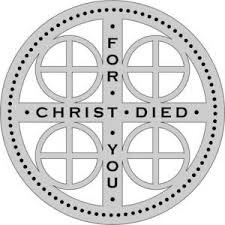
Among other things, we met the three persons nominated to be Bishop Suffragan of the Armed Forces and Federal Ministries. This office has oversight of Episcopal chaplains serving in the Armed Forces of the United States as well as those serving in the Veteran’s Administration and the federal prison system. It is a huge responsibility. The House of Bishops is charged with electing the Suffragan Bishop of the Armed Forces and Federal Ministries and on Sunday, we elected The Reverend Ann Ritonia. She is an outstanding person with extensive military experience including 17 years of service both as an enlisted member and officer in the United States Marine Corps. I especially appreciated her naming two specific challenges the Bishop Suffragan face in our current context. The first is addressing an ongoing problem with sexual assaults in the military. Just last week, the Pentagon reported an increase in sexual assaults at the nation’s service academies. Second, and equally challenging, she identified the problem of the increasing rise of Christian Nationalism within the military. For more information about Bishop-Suffragan-elect, click here.
On Thursday, March 9, the entire House of Bishops, about 120 of us, boarded coaches for a two-hour racial justice pilgrimage to Montgomery. As our Presiding Bishop, The Most Reverend Michael Curry, said in a statement released about this,
“We went to Montgomery not as tourists to consume, but as pilgrims to pray…We went on pilgrimage to holy places to remember those enslaved and abused in the institution of chattel slavery—and the martyrs and witnesses who labored for a society in which there is ‘liberty and justice for all.’ … We went as pilgrims following Jesus and his way of love.”

Both of the primary sites we visited in Montgomery, The Legacy Museum and The National Memorial for Peace and Justice exist as the result of the work of Bryan Stevenson and the Equal Justice Initiative. Bryan Stevenson is a lawyer, law professor, and activist whose best-selling, award-winning book Just Mercy—A Story of Justice and Redemption recounts his and EJI’s 30 years of extraordinary legal work and advocacy “challenging wrongful convictions and unfair sentences.” The book was turned into major motion picture starring Michael B. Jordan and Jamie Foxx which was released in 2019. Bryan Stevenson spoke (actually, preached), to the members of the House following lunch which was hosted at St. John’s Church, Montogomery, just blocks away from the Legacy Museum. It was a message of justice, love, mercy, confession, redemption and healing. Stevenson’s message is absolutely a message of hope for the nation. But the hope doesn’t come from “cheap grace”—it comes from hard truths told and faced in love and contrition by people, and a society with a sinful history and legacy. At the end of his presentation, the House rose as one in applause and acclamation.
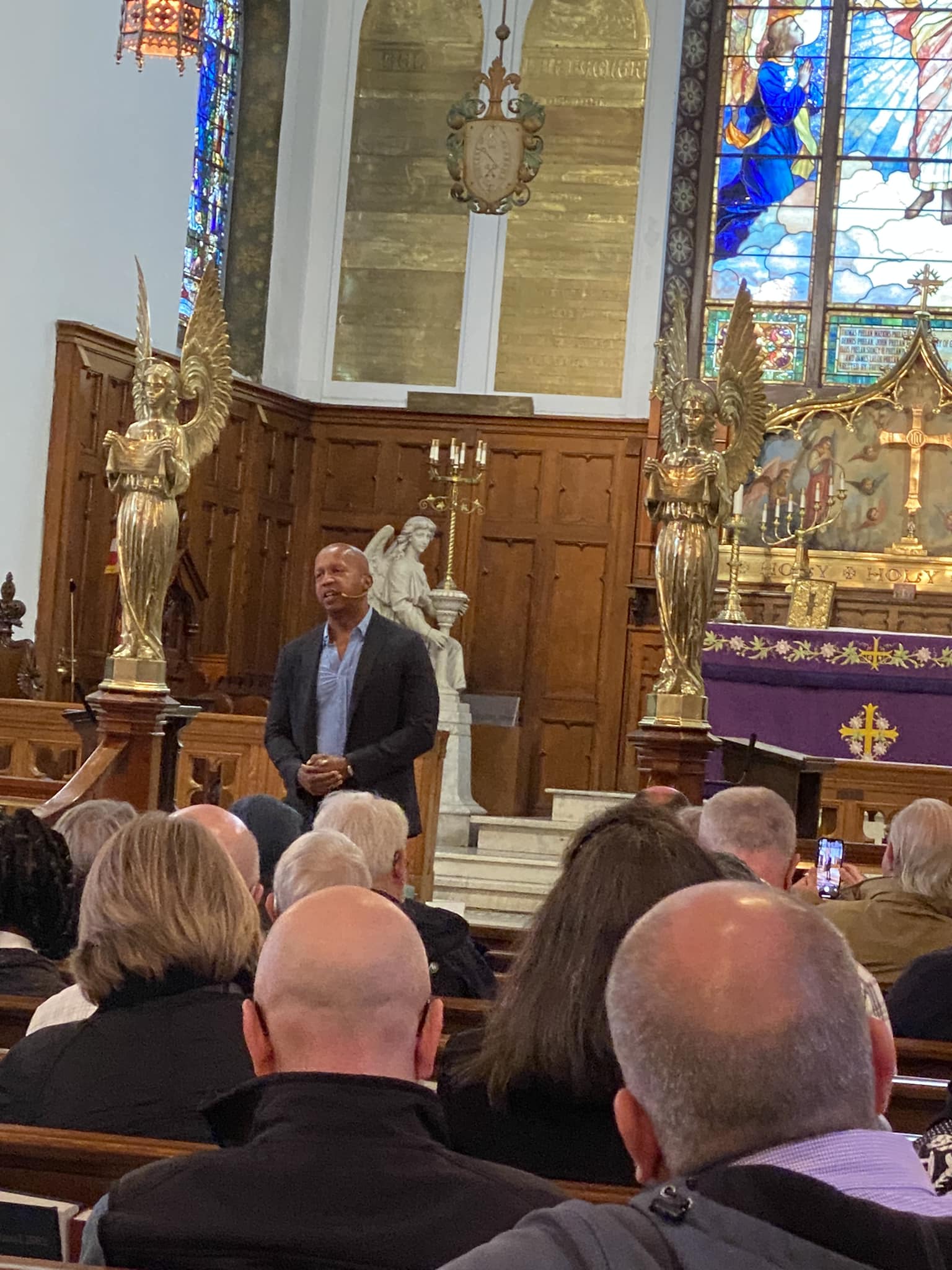 I found my visit to the two museums excruciating and confrontational. By design, they are intended to deconstruct the myth we too often tell ourselves of American greatness and exceptionalism. They are about graphic truth-telling and facing the brutal facts of our violent, racist, and oppressive history. The following words describing The National Memorial for Peace and Justice offer a clear explanation of its purpose:
I found my visit to the two museums excruciating and confrontational. By design, they are intended to deconstruct the myth we too often tell ourselves of American greatness and exceptionalism. They are about graphic truth-telling and facing the brutal facts of our violent, racist, and oppressive history. The following words describing The National Memorial for Peace and Justice offer a clear explanation of its purpose:
More than 4,400 African American men, women, and children were hanged, burned alive, shot, drowned, and beaten to death by white mobs between 1877 and 1950. Millions more fled the South as refugees from racial terrorism, profoundly impacting the entire nation. Until now, there has been no national memorial acknowledging the victims of racial terror lynchings. On a six-acre site atop a rise overlooking Montgomery, the national lynching memorial is a sacred space for truth-telling and reflection about racial terror in America and its legacy.
There was enormous pathos and power in having us, as a House of Bishops, the most diverse House of Bishops in the history of The Episcopal Church to date, share this experience as a body. It informed our time and worship together throughout our time in Alabama and, I feel sure, will have a lasting impact on the church as a whole.
On the last day of our time together at Camp McDowell, we were blessed to meet and spend time with Author, Blogger, Vlogger and Professor of Creative Writing Sophfronia Scott who worked with us as a House of Bishops on “making meaning” of our experience together, that is, “connecting what you saw this week with your experience and who you are.” I know I am still working on this.
I am currently reading Ms. Scott’s recently published novel, Wild, Beautiful and Free and highly recommend it.
At our business session, the House of Bishops formally reaffirmed a statement made last year affirming,
“[We] voice love and continued support for all persons who identify as transgender or non-binary and their families. We decry legislative initiatives and governmental actions targeting trans children and their families. We urge all in our church to create safe spaces and shield all people from harassment based on gender identity.”
I am deeply grateful for the time I spent at the House of Bishop’s meeting. In his sermon at the opening Eucharist, Presiding Bishop Curry alluded to the paradox of the cross and Easter, noting that often times, the two converge as one experience, death and life. That paradox, I felt, marked our entire time in Alabama. Again, it was a time of painful confrontation. It was also a time of looking forward with hope.
May you do the same as we reach this midway point of our Lenten journey.
Blessings and peace.
 The Rt. Rev. William H. Stokes
The Rt. Rev. William H. Stokes
Bishop of New Jersey

